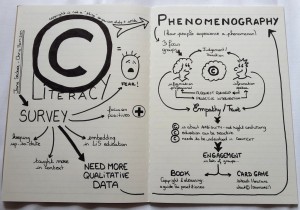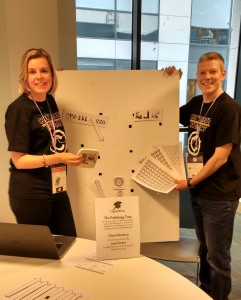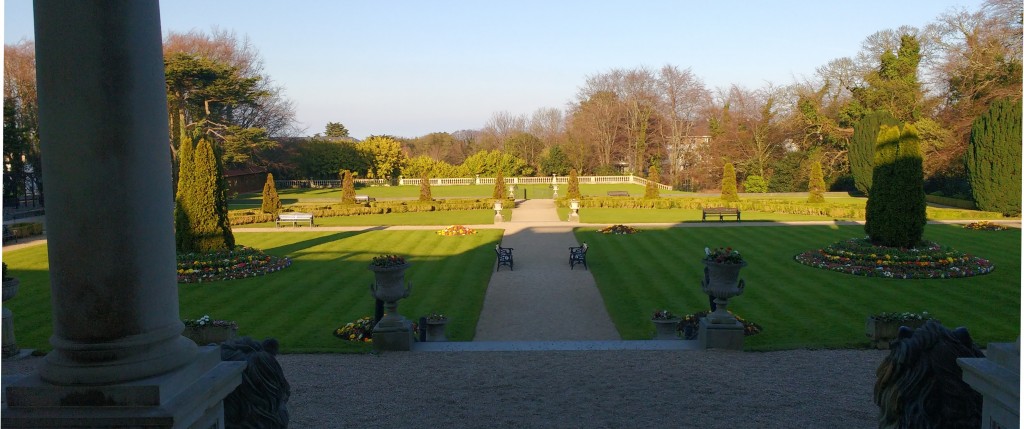I’d hoped to get this post out sooner than this but once again a range of exciting things got in the way (some of which relate to copyright at Kent and I will share in due course).
I was lucky enough to get the opportunity to visit the LILAC conference between 21 and 23 March, partly to present the latest findings on the UK Copyright Literacy research project with Jane Secker, but also to learn more about information literacy and those who teach it from around the world. As with my trip to Estonia last October the experience was both fascinating and slightly overwhelming. The scale of the event and the excellent organisation were impressive, but the level of creativity, commitment and dedication of the IL community and some of the challenging ideas and practices they are generating and demonstrating were genuinely humbling.
There were a number of conference themes which I think were relevant to the work we’re doing at Kent on copyright. One of the obvious ones being the use of games based learning to introduce students to difficult concepts and put them inside a ‘magic circle’ where the normal rules of engagement no longer apply and it is acceptably to fail. This helps dispel anxiety and can allow deep learning. It can also involve absolute pandemonium (in a good way) as the first keynote speakers Alex Moseley and Nic Whitton demonstrated with their truly interactive plenary session. I tried taking notes but to be honest it was more of a spontaneous ‘happening’ than a lecture. However I am going to check out The Grasshopper by Bernard Suits (a book about the ‘Lusory attitude’ of playing games) and am going to find out more about the ALT special interest group in games and learning.

It was also my first time chairing at a conference and I was lucky enough to be given sessions which I had an interest in. Eileen Wright’s presentation about using pop culture to teach information literacy and Aurelie Gandour’s approach to helping students with computer anxiety were excellent and I managed to both pay attention to what they were saying whilst keeping my eye on the clock. (BTW Aurelie’s excellent sketch notes from the conference can be found here).
The second keynote was from Char Booth at California State University San Marcos. I thought what she had to say about getting perspective on how you communicate with others, design, emotions and the various mental states we have to inhabit was inspiring. I got the sense from discussions with others afterwards that her presentation split opinion, with some getting more out of that others. I think this might have had something to do with the style of delivery which was more Steve Jobs than it was traditionally academic. She also raised the issue of copyright and impact it has on information equality which I found really interesting – how the law (and available funding) allows some people to get access to more, or better information than others. She suggested that librarians should explicitly raise this in their information literacy teaching and get students to question the ways in which information is produced and made available.

This last point chimed in with a new prototype game that Jane and I were pitching in the Lagadothon competition, provisionally entitled ‘The Publishing Trap’. The game is an attempt to get those in academia to understand how publishing works from both a practical and ideological perspective. Although we didn’t win first prize, we were awarded a specially arranged runners up prize and given some excellent feedback. I won’t say any more about this game here as we have a way to go before it’s ready to play, but I look forward to developing it further and sharing with people at Kent.
The final keynote was from James Clay who gave a really excellent summary of Jisc’s digital capabilities framework in which he referenced copyright literacy, Boaty McBoatface and told us how to flip our screens by 90, 180 or 270 degrees (CTRL-ALT-arrows, although I wouldn’t recommend trying this if you have a laptop plugged into multiple screens).
As mentioned at the outset of my report the main thing I took away from my visit to LILAC was the sense of community and the power of sharing creative ways of approaching the teaching and examination of information skills. This is something I look forward to continuing as part of my role as copyright office here at Kent. On that note…watch this space.

